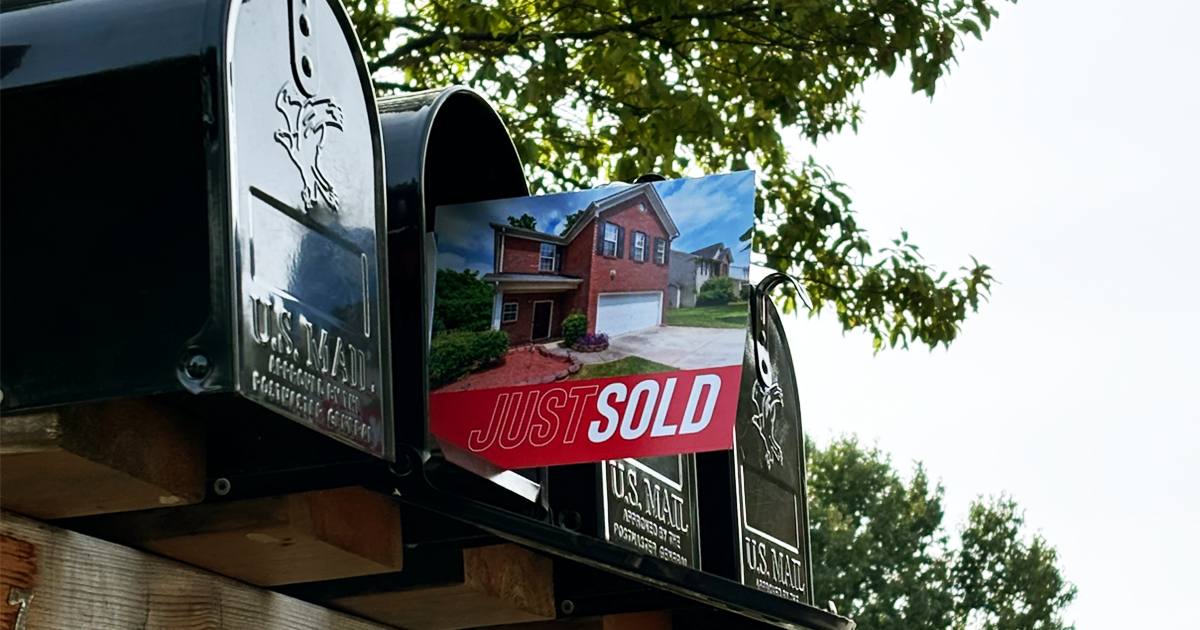”There are no traffic jams along the extra mile.
Roger StaubachFormer Dallas Cowboys Quarterback
In the competitive world of real estate, standing out isn’t just about having the best listings or the sharpest real estate marketing strategy — it’s about the willingness to go the extra mile. Sometimes, asking for referrals and being consistent with your client follow-up takes that extra effort.
Mastering the art of real estate referrals and real estate follow-up can become your secret weapon for success.
The key to asking for referrals is to just ask!
Ask directly for referrals from everyone you interact with — current clients, past clients, friends, family, people you meet when you’re out networking, your sphere of influence (SOI), neighbors, vendor partners and anyone else you have a business conversation with. You never know when the simple gesture of asking will turn into a valuable, lifelong connection.
You can also make an indirect request by including a call-to-action in the message that accompanies a closing gift. Many agents find success by asking for referrals in the salutation line of a text or email. You can also send a personalized real estate postcard to your SOI or farming area, inviting them to think of you for future referrals.
A real estate referral program is another cost-effective way to build your business.
On average, each happy home buyer you work with knows 5 friends or family members who are interested in buying or selling. While many agents know the value of referrals, they hesitate to ask, fearing they’ll come across as pushy or self-serving. The truth is you’re simply asking to be connected with people who could use your help. There are proven effective client follow-up programs out there which require a minimum investment for a maximum reward — some are even automated and cover your real estate marketing needs for a full five years!
Join a referral network.
If you have the opportunity to join a referral networking group, don’t hesitate. Groups like Business Networking International (BNI) allow only one professional per industry – one real estate agent, one lender, one insurance agent, etc. Their sole purpose is to exchange referrals among members, making them a valuable resource for growing your business. While BNI is the largest referral network, many other options exist. Check with your local Chamber of Commerce, ask colleagues in different fields for recommendations or search online for referral groups in your area.
Get social!
To generate real estate referrals through social media, consistently share success stories and include specific, relatable details. For example, post about a recent sale, such as helping an elderly couple transition from a colonial-style house to a single-level condo in a maintenance provided neighborhood. End your story with a call-to-action like, “If you know someone in a similar situation who needs help, let’s chat!” Don’t forget to add success stories to your email marketing too!
Partner with other small businesses.
Ask local business owners to keep you in mind when they come across people who have a real estate need. Approach them from a place of being a fellow small business owner. If possible, refer a few clients to their business before asking for referrals in return — this gesture can strengthen your partnership. Practical ways to collaborate include promoting each other on social media, featuring an interview with the business owner on your website and social channels, co-hosting a charitable drive, or organizing a client appreciation event at their location.
Pro Tip
Once you’ve built your business to a level where you have many referral sources, consider creating a VIP list. This is a section of your database consisting of the people who’ve sent you the most referrals over the course of the year. You can have special VIP dinners, send them a nice holiday gift or make a point to see them in person more often than the rest of your database — whatever it takes to make them feel special and appreciated.
